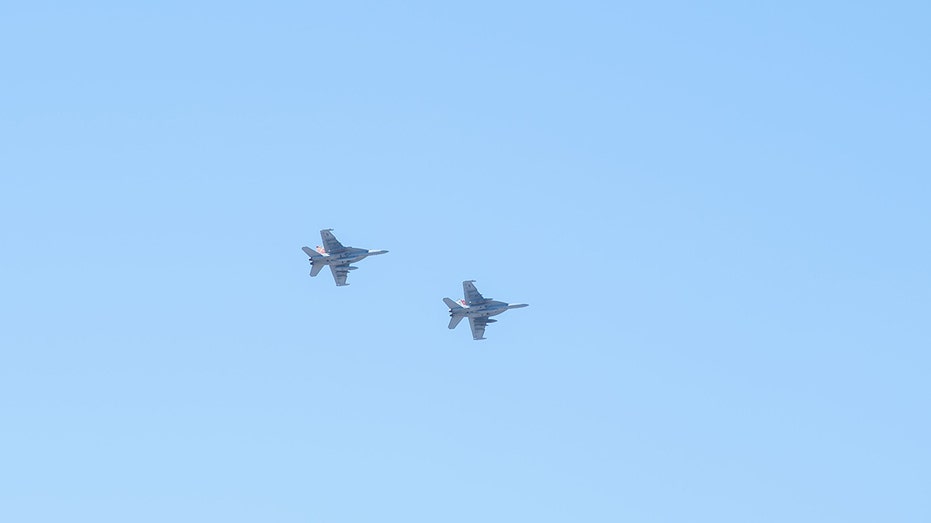
This article was originally published on WND - U.S.. You can read the original article HERE

On Oct. 21, the plenary of the Financial Action Task Force, or FATF, will convene in Paris. Should the organization that sets global standards for countering money laundering and terror finance consider removing the Islamic Republic of Iran from its blacklist, as Tehran hopes, the answer should be a resounding and unequivocal “no.”
FATF has previously told Tehran it needs to address technical issues like weak customer due diligence mechanisms; processes for identifying and sanctioning unlicensed money transfer service providers; and ensuring that financial institutions verify originator and beneficiary information. But Iran has yet to comply with the full action plan FATF has identified. FATF should not remove the Islamic Republic from the blacklist until it ceases the actions that have made Tehran the world’s leading sponsor of terrorism and terrorism finance.
One of the bloodiest terrorist attacks associated with the regime occurred on October 7, 2023, when Iran-backed Hamas massacred or kidnapped nearly 1,500 people from southern Israel, including Israeli civilians, at least 40 Americans, and citizens of 45 countries. The terrorist group recently executed six of the hostages in cold blood, including an American citizen.
But Iran’s malign role in the Middle East hardly started there.
In the last 12 months, Iran has provided funds and weapons to the Houthis, a Yemen-based terrorist organization. The Houthis, a proxy and willing partner of Tehran, have launched scores of deadly missiles and drones targeting international tankers and ships. This has disrupted billions of dollars in global trade in the Red Sea, including food, oil and gas, and consumer goods, impacting all FATF member countries.
In the last 12 months, Hezbollah has fired more than 8,000 missiles and rockets into Israel’s population centers, killing at least 41 Israelis, including 12 Druze kids playing soccer. Iran provides weapons and hundreds of millions of dollars annually that Hezbollah uses for terrorism. October 2024 will mark 41 years since Hezbollah killed 241 U.S. servicemembers and 58 French paratroopers sent to Beirut to keep the peace.
In the last 12 months, al Qaeda, designated by the United Nations as a terrorist entity, has called on foreigners to join the organization and receive training for terrorist activity in Afghanistan. Iran is providing safe haven to Sayf al-Adl, believed to be al Qaeda’s head emir.
FATF placed Iran on its blacklist in 2007. The events of the past year are reminders of why it should remain there. The blacklist sends a message to the market that it’s just not safe to do business with Iran.
Masoud Pezeshkian, the new president of the Islamic Republic, has made Iran’s removal from the FATF blacklist a priority because he knows it’s a prerequisite for reintegrating the country into the global financial network and bolstering its economy.
However, an editorial in Kayhan, a publication regarded as the supreme leader’s mouthpiece, reminded him and the public, days before his September 24 address to the UN General Assembly, that “matters of state like FATF compliance are not for lower levels of the political hierarchy to decide.” The piece emphasized that such critical issues remain firmly in the hands of Ayatollah Ali Khamenei.
There has long been a debate in Iran about complying with FATF’s requirements. If Tehran complies with and really enforces FATF’s action plan, it would be more difficult for the Islamic Republic to evade sanctions, launder money, and finance terrorism. Consequently, the hardliners are against compliance with FATF’s requirements.
The pragmatists argue that the cost of being on FATF’s blacklist is too high a price for Iran’s economy and advocate carving out exceptions in how its laws define terrorism. They want it both ways. They argue that Iran can keep secret what information its authorities reveal about their illicit financing.
Included in FATF’s requirements is that the Islamic Republic enact legislation that would compel the country to become a party to two UN conventions: the International Convention for the Suppression of the Financing of Terrorism and the Convention Against Transnational Organized Crime. The Iranian parliament introduced the bills in 2018.
Tehran drafted the bills to define terrorism in a way that excludes organizations it says “struggle against colonial dominance and foreign occupation.” In so doing, the Islamic Republic seeks its removal from the blacklist while simultaneously continuing to finance its “axis of resistance,” including the Houthis, Hezbollah, Al Qaeda, and Hamas. FATF, however, does not permit such deceptive carve outs.
In 2018, Iran’s parliament approved the FATF-related bills, but its Guardian Council, a 12-member body that screens all legislation to ensure it conforms with the regime’s Islamist ideology, chose not to ratify them. Six years later, the decision remains pending before the Expediency Discernment Council, which intervenes in cases of disagreement between the parliament and the Guardian Council.
Earlier this month, Pezeshkian told the media, “I will certainly write a letter to the Expediency Council to reactivate the FATF discussions so that we can find a solution” to Iran’s economic troubles. Even if the council ultimately passes the legislation, FATF should not remove Tehran from its blacklist. Iran’s leaders have made clear they do not intend to stop financing terrorism, laundering money, or evading international sanctions. Pezeshkian’s post-election dialogue with and expressions of support for Hamas, Hezbollah, and the Houthis reflect this policy.
To protect the global financial system, FATF should keep the Islamic Republic of Iran right where it belongs.
Saeed Ghasseminejad is a senior advisor at the Foundation for Defense of Democracies (FDD). Toby Dershowitz is managing director at FDD Action. Follow them on Twitter @tobydersh and @SGhasseminejad.
This article was originally published by RealClearWorld and made available via RealClearWire.
SUPPORT TRUTHFUL JOURNALISM. MAKE A DONATION TO THE NONPROFIT WND NEWS CENTER. THANK YOU!
This article was originally published by WND - U.S.. We only curate news from sources that align with the core values of our intended conservative audience. If you like the news you read here we encourage you to utilize the original sources for even more great news and opinions you can trust!










Comments